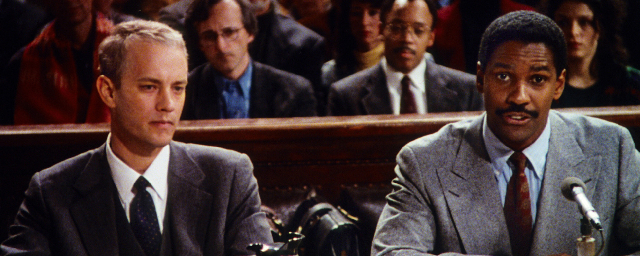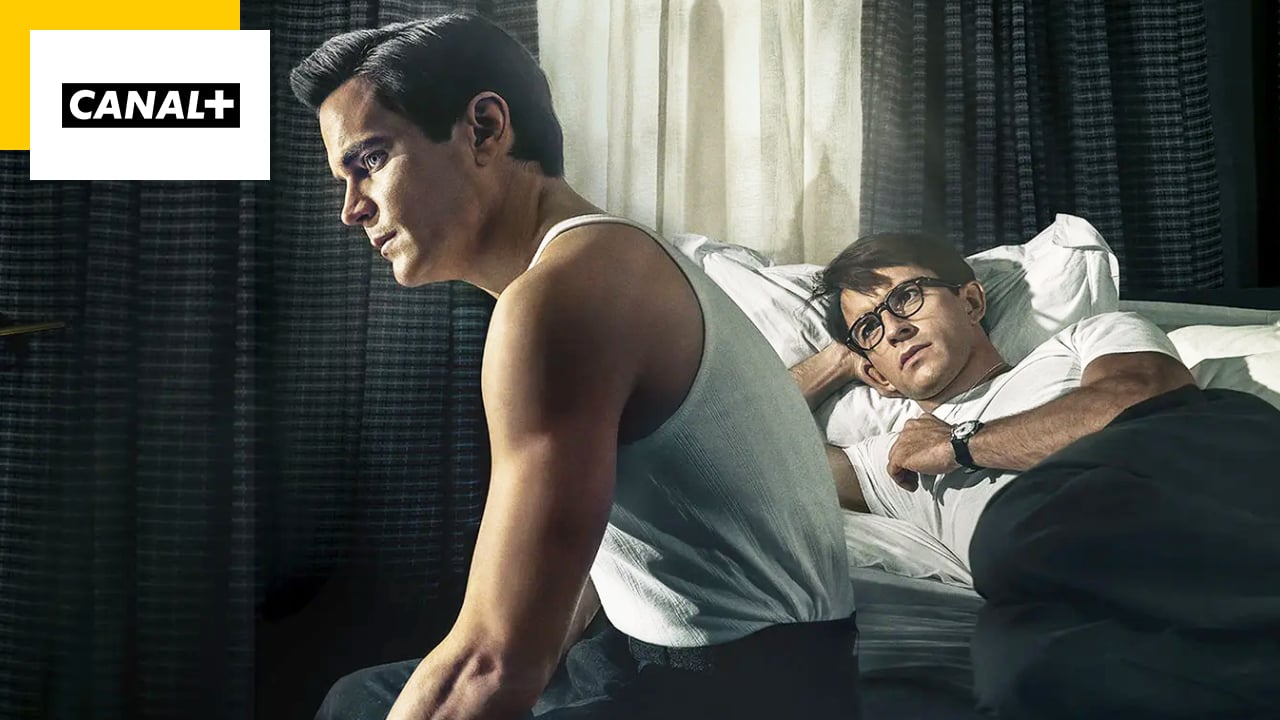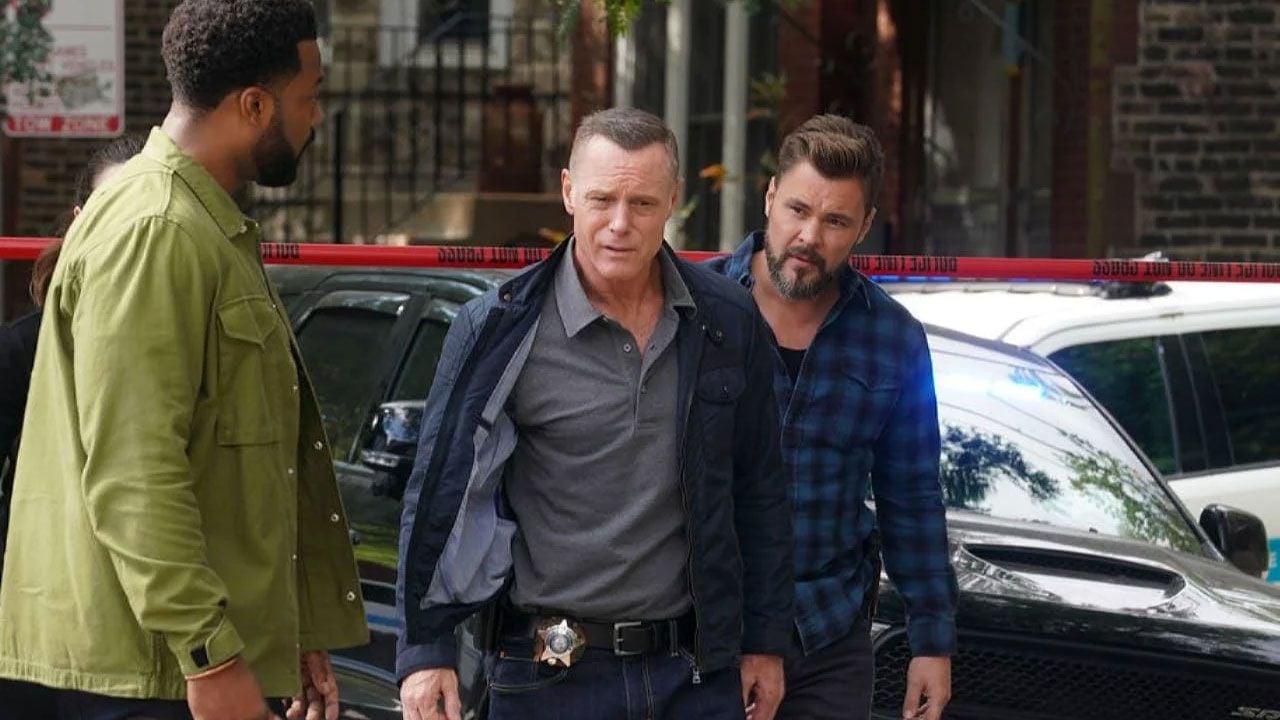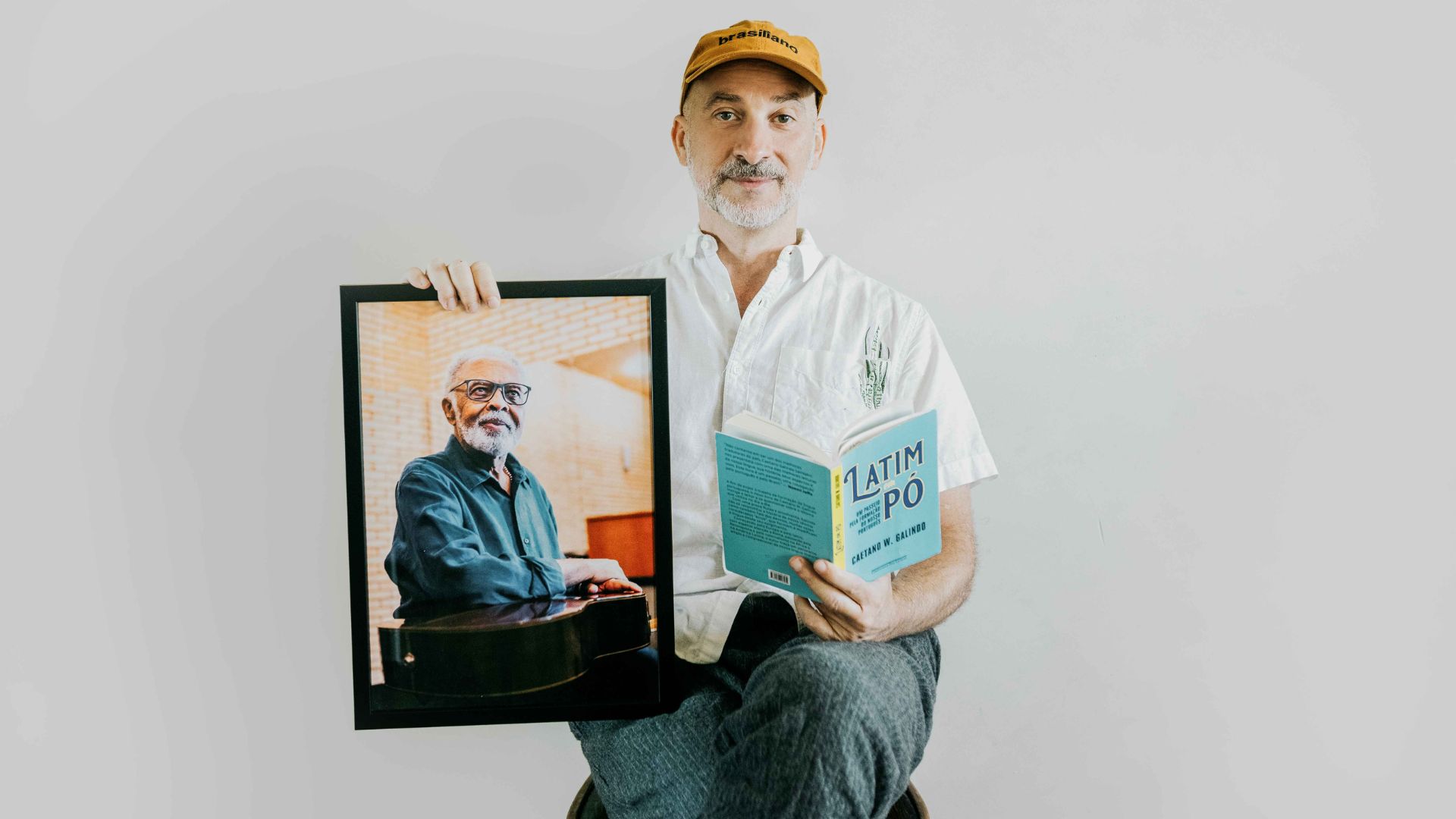If the era of McCarthyism and the era of the hunt for communists have repeatedly become the subject of political thrillers in cinema, the Purple Scare – the hunt for homosexuals – is a much rarer subject. That’s at the heart of Fellow Travelers, an ambitious series helmed by Matt Bomer and Jonathan Bailey, but primarily written by the auteur who has done so much to represent LGBTQ+ people in Hollywood, Ron Niswaner.
Thirty years ago, he wrote the first American film produced by a major studio about AIDS. Jonathan Demme’s Philadelphia earned Tom Hanks his first Oscar before becoming a classic. AlloCiné caught up with Ron Niswaner to review this faithful series, which, in a way, completes the cycle that began with Philadelphia.
AlloCiné: Fellow Travelers is a political series featuring characters and stories we still rarely see on screen. Was it difficult to make this series?
Ron Niswaner: From the moment we sold it to Showtime, we got a series of yes votes. It was a long process, yes, but the series was supported and loved by the studio, Fremantle and Showtime, which meant a lot to me. But, obviously, there were notes, suggestions, things that I agreed with, others – not. But it was a great collaboration. So I was very lucky.
AIDS is a part of history that people forget and we have overcome it.
The series is rich in detail and information about the McCarthy period. How long did your research take to gather this material?
I worked with two assistants throughout the process. And so it went on for several years. There was a research phase before we sold the series, and once we sold it, we hired Louis Gropman, who became our specialist. From Joseph McCarthy to Roy Cohn, everything historical figures say publicly on the show, they actually said.
The audition scenes come from contemporary recordings, as do McCarthy’s speeches. This also applies to the lie detector scene, these are questions that were actually asked. It is meticulous work.
The story spans thirty years of history. How did you decide which pivotal moments you really wanted to include in the series?
What bothered me was Hawkeye and Tim’s love story. How to combine them? What history lesson do I want to teach? I asked myself these questions and also wanted inspiration from my own experience. I came out in 1978. That’s how I experienced the thrill of dancing in a nightclub, how fun it was and how much we celebrated our sexuality at that time. It was incredible. And then AIDS came shortly after, a few years later. And I knew I wanted to capture that moment.
This dark period played a very formative role in my life. It’s a part of history that people forget, and we’ve overcome it. Today I hear people say, “Our times are worse than ever“. No, it’s not. It’s not the darkest time in the history of the LGBT+ movement. You can adopt children. You can get married. You can sue your employer if you’re fired because you’re gay. None of that happened. Until the last year.
We stand on the shoulders of people who lived through the McCarthy era, on the shoulders of people who lived through the AIDS crisis. We owe them our lives. That’s why part of me wanted this story to be known, but only if it was told well.
Jonathan Bale and Matt Bomer in “Passengers.”
Matt Bomer and Jonathan Bailey are amazing on the show. What else do they add to the characters you write?
Matt Bomer perfectly understands his character’s pain. He understands that he is not a person devoid of feelings. Hawkins Fuller has deep feelings for her. He just doesn’t want anyone to see it because it keeps him from living the free life he wants. And I think Matt showed that well to Hawke.
What Matt is able to do, and I think is the epitome of a great movie actor, is that by barely moving a muscle in his face, you always know exactly what Hawkeye is thinking and feeling. He never expresses it. He never says “I think”. It’s still a mystery. Jonathan brought a lot more nervous energy and a little more confidence to Tim.
People are very attached to their identity and I think it’s important to overcome that.
Hawkins and Tim are not perfect heroes. On the contrary, they have many drawbacks. Today we tend to think that queer representation on screen must necessarily be ‘positive’, what do you think?
I have been fighting this for years. And I’ve been saying for years why can’t we be Don Draper from Mad Men as Tony Soprano or Walter White? Why must we always be the noble victims of oppression? It’s boring. There are no victims here. People are very attached to their identity and I think it’s important to overcome that. We all have this group of letters after our name.
“I’m LGBTQI blah, blah, blah.” And if young actors or young screenwriters talk about it, I would say to them: “Yes, this is the truth. But put it out of your mind, it doesn’t exist.“The human experience we have is the same whether we are or not.
Satellites span several decades. As a screenwriter, which of these decades is your favorite or which episode do you enjoy writing the most?
Episode seven, which takes place in 1979, because that’s when I came out. And also music. Donna Summer was very important to me. It’s kind of the musical theme of my coming out period. I had so much fun writing this episode, and also because the depth of grief that Hawke goes through in this episode is something I’ve experienced myself. This is the most personal episode of the series.
I really loved the 50s then, because as a writer I think the best way to write is to hold back information and feelings. It was a time when, whoever you were, you didn’t talk about your feelings, thank God. We kept a big part of who we were. And I was great at writing about the inexpressible.

Tom Hanks and Denzel Washington in “Philadelphia” by Jonathan Demme and author Ron Niswaner.
You wrote the Jonathan Demme film Philadelphia with Tom Hanks and Denzel Washington. The film celebrated its 30th anniversary. What memories do you have of this moment in your career?
This is one of the greatest gifts of my life. Jonathan Demme was my mentor. He introduced me to the world of cinema and changed my life. I was with my massage therapist just a few months ago. At one point he had to Google me and said:You wrote Philadelphia“. He is 30 years old. I said yes. He told me that this movie changed his life. I said: “How is it possible? You are 30 years old. be a child”
He told me the story of his high school in Central America. His high school teacher showed him the movie and he was like, “I’ll make it. If Tom Hanks can cast me in a big movie, then anything is possible.“
This movie keeps on giving me these kinds of gifts. I am still friends with the people who made this film. We still meet regularly in small groups. I just said to my companions: “Maybe in 30 years you will all gather like my friends in Philadelphia. I probably won’t be thereAnd they answered me:Oh, of course you’ll be thereI tell him that I will probably be in a wheelchair at this point (laugh). Nevertheless, Fellow Travelers was an equally important experience for me.
Comments collected by Thomas Desroches on December 28, 2023.
Satellites are available on myCANAL and broadcast on CANAL+.
Source: Allocine
Rose James is a Gossipify movie and series reviewer known for her in-depth analysis and unique perspective on the latest releases. With a background in film studies, she provides engaging and informative reviews, and keeps readers up to date with industry trends and emerging talents.






